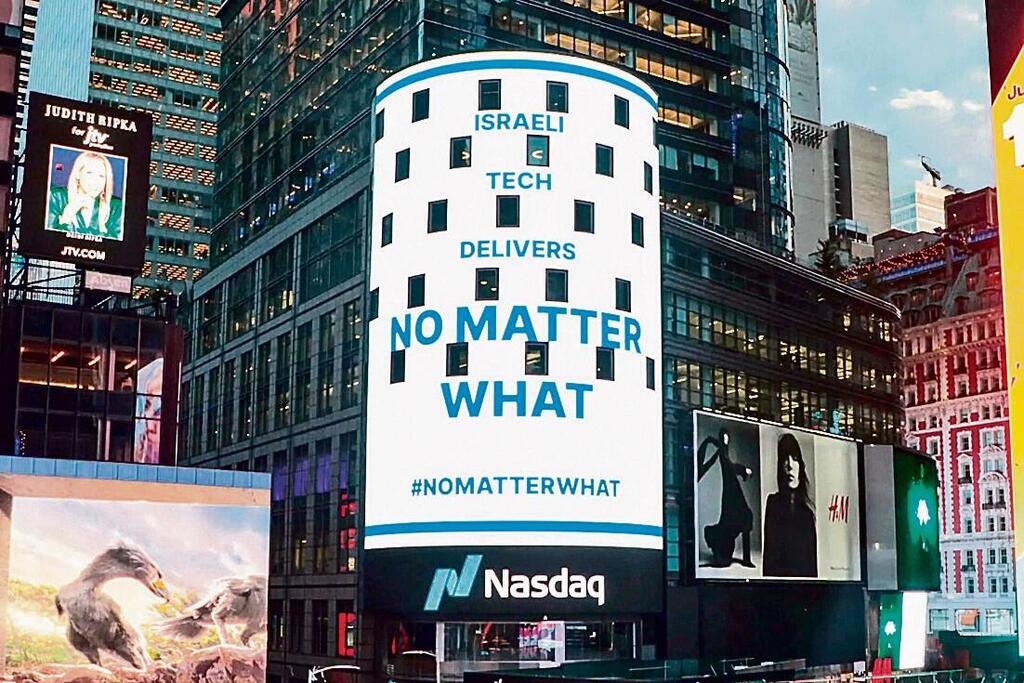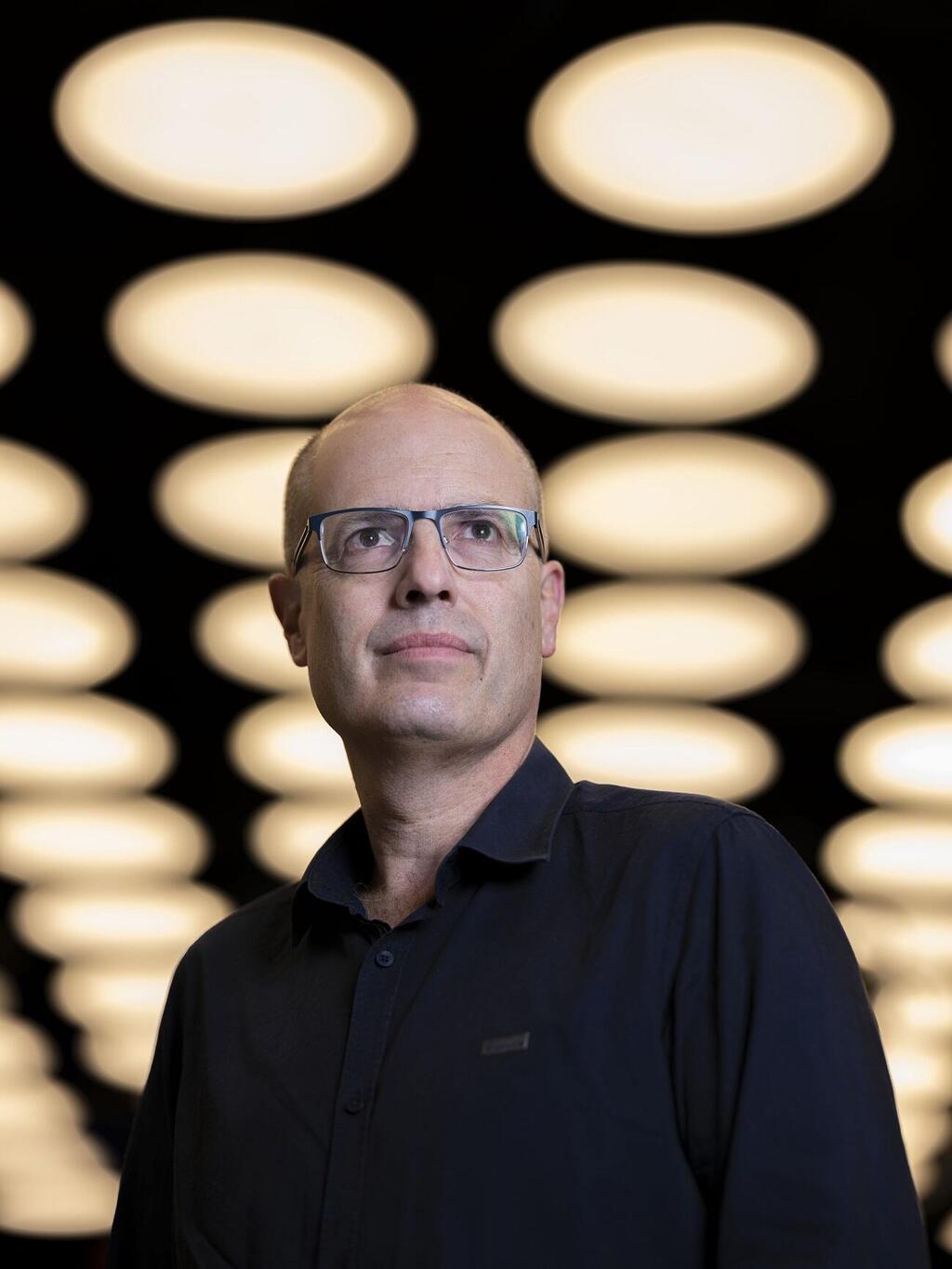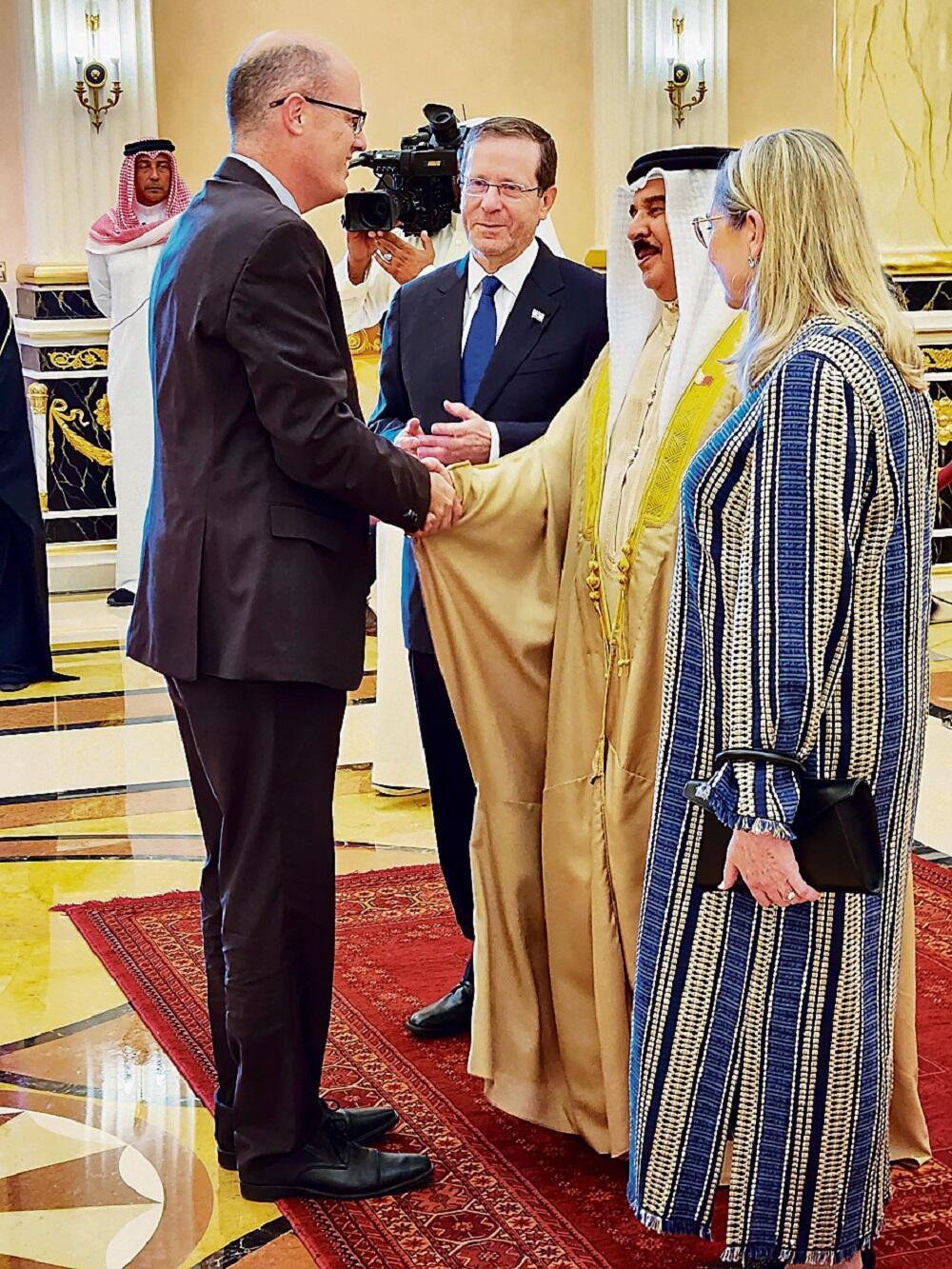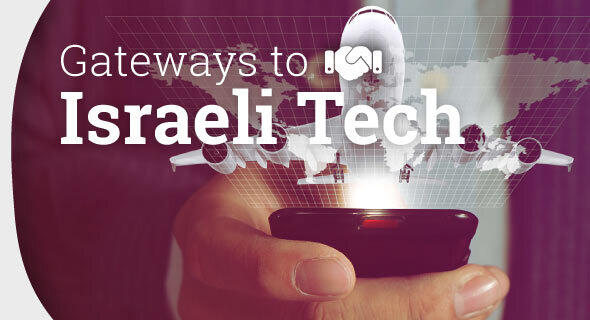War produces ideas, innovation and technological development. Hi-tech people are here to stay, and investments are yet to come. Dr. Avi Hasson, founder of the Israel Innovation Authority and currently CEO at Startup Nation Central, is behind a report that is surprisingly optimistic about the future of Israeli high-tech. In an interview, he explains why he abandons his pessimistic predictions.
Read more:
At the end of September, after a difficult year for Israeli high-tech due to global slowdown and judicial reform - "Startup Nation Central" (SNC), located in a fancy designed building on Lilinblum Street in Tel Aviv, began to see the light at the end of the tunnel. Foreign and local company managers came in and out of their doorstep at a record pace; Everything was hectic - discussions, meetings, senior delegations arriving from abroad. Even a conference was scheduled for February in the capital of Bahrain with 1,000 participants from the Gulf countries, under the auspices of the King and in cooperation with the Bahraini Ministry of Commerce and Industry.
And then October 7 happened. "Everything stopped overnight," recounts Avi Hasson, CEO at SNC. "The building was emptied, activities stopped, the conference was canceled. And after all the tremendous effort we put in maintaining relations with countries in the region - there was suddenly no one on the other end of the line."
But today, more than 100 days since the war broke out, Hasson, former Chief Scientist of the Ministry of Economy, and chairman of the Israel Innovation Authority (which he founded) is optimistic. "I am less worried today than I was during the judicial overhaul period," he says, "because in the end, more than anything else, our most important asset is the human capital. Israel is a hub of human, entrepreneurial infrastructure, with a unique environment, making it suitable for building startups; this was the first time I really feared that people would leave the country. CEOs of multinational companies told me at the time that they had never received so many applications for relocation. Now things have reversed, and this trend has fallen off the agenda: many of them, who only a few months ago prepared their foreign passports and registered their companies abroad, are today in a state of mind of 'we stay and fight, we stay and influence'. Therefore, by the way, I bet that we will soon see more and more high-tech people going into politics.
"There is another important element: war produces ideas and innovation. Technologies that were developed, perfected, and tested in war can be converted to, say, picking peppers. And I say: just as there is always 'baby boom' after wars, we will see a significant change here."
There is a deep pocket
"Startup Nation Central" is unique and there's no such other company in the entire world: it's a free-acting NGO that runs like a high-tech company in every respect - 110 employees with a chief business officer, product managers, customer managers and a customer relations platform - which in 2022 generated an annual turnover of approximately NIS 80 million based on donations only, and its only goal is to strengthen the high-tech industry in Israel; to connect between local companies with investors, companies and entrepreneurs from abroad. CEOs of the world's largest international corporations, from food giants like Nestlé to medical centers like Henry Ford in Detroit, senior officials and government representatives, make a pilgrimage to SNC, "and they always ask 'so, where's the catch?' ", laughs Hasson. "You don't get commissions from us", they tell me with a wink, "so you probably get one from the company you recommend, or from the government". They find it hard to believe that we are a non-profit organization."
Hasson, 53, has been holding this powerful position, perhaps the most influential on the status of Israeli high-tech in the world, for two years. His predecessor was Prof. Eugene Kandel, currently chairman of the Start-Up Nation Policy Institute SNPI. Hasson entered the position after serving six years as the chief scientist of the Ministry of Economy and chairman of the Israel Innovation Authority. Before that, he served as General Partner at Gemini Israel funds. He is a graduate of IDF's elite intelligence unit 8200, holds a BA in Economics and Middle Eastern Studies and an MBA. He is married, father of three and lives in Modi'in. His wife, Efrat Fink, is a judge in the Central District Court.
A few weeks ago, contrary to the gloomy predictions about the high-tech industry in wake of the Gaza war, Hasson signed a relatively optimistic 2023 annual report for SNC, which, despite uncertainty and difficult year, points to first bright spots: 88% of multinationals plan to maintain or expand their presence in Israel; private funding levels have shown notable resilience, comparable to that of the US; funding has stabilized to 2019 levels, yet, it is actually closer to $10 billion, and signs of rebound are evident in acquisitions and mergers.
SNC draws this data from a powerful tool it developed and maintains with a large investment: Startup Nation Finder - an online knowledge and networking platform that supports the development of the Israeli innovation ecosystem. It provides top-quality data and insights about the tech industry and links to key ecosystem players including 7500 startups, 500 multinationals active in Israel, investors, accelerators, and much more.
"Finder" has over 100,000 regular users, most of them located abroad, who use it for innovation scouting, to create collaborations, and more; it also serves as a reliable tool for conducting surveys in the field.
How is the promise of overseas investors to maintain their presence in Israel consistent with another figure in the report, that about half of the active investors in Israel anticipate a decrease in investments in Israeli technology in 2024?
Hasson: "Investors sometimes confuse investments in funds with investments in startups. They really have doubts about the ability to raise continuation funds even in 2024. But this is different from the money for startups, which majority part has already been raised. The Israeli investors have deep pockets, but their money which was raised by Israeli funds in 2021 and the first half of 2022 was barely invested because they all went into the bunker. They will have no choice but to invest it. These funds will come, and the entrepreneurs will come, and we are expected, in my opinion, for a new wave of innovation and entrepreneurship."
On the other hand, there may be nothing left to invest in: in the last 8 years there has been a steady decrease in the number of startups founded in Israel, and in 2023 the number of fundraisings for startups decreased by 50%. So maybe it's time to drop the title "Startup Nation" and focus on helping giant Israeli companies and multinational companies?
"First of all, every big company was once a small company. There is no way to produce five unicorns (companies valued at one billion dollars or more) without starting with 100 or more startups. In order to reach big Israeli companies, you must have a critical mass of startups. It's a kind of pyramid that you have to climb from the bottom. It always starts with academic research - where we are also in trouble - with ideas and inventions, and then it translates into startups. These, by the way, in the vast majority, are either closed or swallowed by bigger companies.
"By the way, in all the startups in Israel, roughly 10% of high-tech employees work. Another 20% work in international companies. That's it. So, the large majority is actually in Israeli companies that have grown, such as Check Point, ironSource, Nice, Wix and more. In the last decade we already have more than 100 like these. Even when they are acquired, they are so big and powerful that not only do they not leave Israel – but they usually bring in more investments; for example, Mobileye and Mellanox, which today is part of Nvidia.
"There is a red line below which none of this will work, and the decrease in the number of startups is really very worrying. The phenomenon, by the way, is not unique to Israel, but here - it is critical."
So why arefewer startups being opened?
"The innovation we see today focuses mostly on very specific areas - mobile, social networks, the Internet. In these realms the world has already reached its peak. In other words, there are indeed a lot of upgrades and updates, but there are fewer new ideas which justify establishing a new company. For example, 70% of the decrease in startups is attributed to one field - AD Tech, which many startups in Israel engaged in, until Facebook and Google took it over and all the others became redundant. The positive side is that we are now at the beginning of a new wave of innovation - technologies such as artificial intelligence, synthetic biology, quantum and more. We still don't see significant numbers of startups in these fields, but they are on their way. AI in itself creates endless of opportunities.
"And there is another reason for the decline. Many years ago, big companies, such as IBM as it once used to be, were not innovative, not fun, not very rewarding - and therefore, if you were a young person who wanted to do the hottest thing and make a good profit, you would start a startup. Today, giants like Google, Meta, Amazon, Apple and Nvidia are very innovative, rewarding companies, and they have an advantage over startups - they own the most significant databases and 'engines.' Obviously, you will be less eager to establish your own startup when you can work in such places, earn very nicely, and engage in innovative topics in a dynamic environment."
GPS for startups
SNC owes its establishment to the best-selling book by Dan Senor and Saul Singer "Startup Nation", published in 2009 (in these days, by the way, a sequel "The Genius of Israel" is published, which is no less flattering to Israel). The dramatic impact of the book was not lost on the Jewish billionaire Paul Singer, one of the most successful hedge fund managers on Wall Street, founder of the major hedge fund Elliott Management, and his partner, Terry Kassel. The two, passionate Zionists, were inspired by the book, realizing that the right way to strengthen Israel is through high-tech.
As far as its founders are concerned, SNC is a kind of GPS, a road navigator that should make Startup Nation accessible to the world. As mentioned, the organization's budget is based only on donations; the couple (Singer and Kassel) contribute about half of it, and over the years and due to its success, many other donors have been added.
CEO Hasson and his co-workers are perfectly networked in the Israeli high-tech map: they know everything about everyone and are able to provide any investor or company with any relevant information about companies operating in Israel, in high resolutions and in almost every possible cut. Hasson: "For example, I can call a meeting of the managers of the top 30 multinational companies active in Israel to get updates, and they will tell the truth. This place is considered a haven. They share with complete openness, and it is clear to everyone that what comes up in the room does not leak. It is also kind of a support group: a CEO can suddenly discover that the problem he is enduring is also shared by other managers. By the way, if you talk to each of them, you will hear that they wear two hats: they are the ambassadors of their companies in Israel, and they are the ambassadors of Israel in their companies.
"In general, one of the greatest assets of Israeli high-tech, which unfortunately was undermined in 2023 and I hope will now recuperate, is the deep feeling every entrepreneur here has, that he is actually selling two things - his product and the country. When I served as the chief scientist, I got the chance to meet a lot with the CEOs of the world's technology giants. I would always ask them what their strongest impression of Israel was. One of the most prominent CEOs, whose name I will not disclose, told me in amazement: "'Listen, I met 13 companies here, and each one of them - apart from selling me their product, sold me Israel'. This is something that is very significant for us, even if we don't notice it.
"Apart from the economic aspect, we at SNC also engage with Israel's global positioning, which these days has become very significant: how do you turn something that is perceived as a problem maker, into a place that produces technology and know-how, that overcomes the challenges of humanity, such as epidemics, climate crisis and water shortages. We also created the term 'innovation diplomacy', in which we turn the tables: the startup companies are the 'product' that we utilize to forge ties with other countries. We focused mainly on countries included in the Abraham Accords and other countries in the region with which we do not have agreements."
So why not settle for the website?
"Besides the 'Finder', which serves hundreds of thousands of people and provides initial information, there are also hundreds of investors and executives from abroad who contact us directly. We offer tailor-made 'product' packages - from a two-hour presentation on Israeli high-tech, through an in-depth study of a certain sector and a meeting with specific startups, to a three-day, and sometimes a week, of in-depth study and an open discussion about strategies and other relevant areas. There are also completely different processes, such as 'Tech Challenge', as we call it. Let's take, for example, an American hospital that is interested in early diagnosis technologies for Alzheimer's disease. We know how to lead, together with the customer, a long six-month process, which allows relevant companies in Israel to propose themselves, which can also include a judicial process to select the winners."
What has changed in your work since the war broke out?
"Everything. If normally our 'customer' is a foreign body, from the outside in, we immediately realized that the 'customer' now is the startups at home that need urgent help, that is, from the inside out. All the companies asked for temporary funding, to allow them to survive the coming months. These are companies that lost deals, that were just planning to go on a fundraising campaign, that at least 15% of their employees are in IDF reserves duty - sometimes the founders themselves. At the same time, we received tons of requests from people all over the world offering their help. It could be also professionals, including senior consultants in large companies, who offered to work voluntarily for the sake of Israeli startups.
"We literally set up a service center here, which served 520 startups within a few weeks. We also helped companies to receive government support, and we built a 'pool' of foreign investors that we work with regularly - many of them contacted us on their own initiative - and we offered to provide them with information about startups that are looking for urgent financing. Most of them responded positively."
Who are these people - philanthropists with a warm Jewish heart or businessmen who seizes the opportunity?
"The first tier really consists of Jewish investors, and in this war there were also those who suddenly discovered their Jewishness. But not only: it could also be a senior official of an investment company who wants to help Israel and simply doesn't know how. Some of them are people who have used our services over the years as we were helping them find exactly what they needed without asking something in return. So, we told them: Now it's time for you to help us. And there were also those who said to themselves, 'Precisely now Israel is becoming an interesting place to invest in.' Multinational companies also supported Israel very clearly, which was not obvious at all. The main reason in my opinion is that Israel has become very important to them; today it is a strategic center for many companies.
"In addition, we launched an international campaign under the title 'Israeli Hi-tech delivers, no matter what'. The idea is to convey stability and preserve the image of 'the engine keeps running'. Because with all due respect to the Houthis, high-tech does not involve maritime transportation, supply chains or logistics. During the Russia-Ukraine war, many companies experienced a similar situation, they had quite large development teams in Ukraine, but there the first question that was raised was how to get them out of the country. In Israel it's the other way around: 300,000 Israelis, from anywhere in the world, simply boarded a plane and came to Israel. It seems natural to us, but for people abroad – they find it fascinating."
"Important government signaling"
Nevertheless, according to all the data, including yours, the investments in Israel are in a bad shape - about 60% drop. How does this correlate with the cautious optimism emerging from your survey?
"This is not contradictory. On the one hand, people are really concerned. On the other hand, there is a great deal of trust in the resilience of Israeli high-tech. Most of the decline we experienced in 2023 is a global phenomenon, experienced in each of the high-tech centers in the world. In Israel, the decline was more significant, and we attribute it to the 'judicial reform' and the Gaza war. So, we dropped to 2019 figures, and we are talking about investments of 'only' two billion dollars per Quarter in 2023, but we weep over it because we remember the large sums of 2021. But two billion dollars per quarter is still a lot of money, also in international terms.
"Besides, in Israel things always happen two quarters after Silicon Valley. In 2023, everyone was sitting on the fence. It's a bit like the real-estate market: sellers are still asking for the old prices; buyers have already realized that the situation has changed and are not willing to pay so they are waiting - and the result is that no deals are being made. But they will happen, and that is certain. So, I believe that these investments will be made in 2024.
"And another encouraging thing: foreigners invested less, but they did not abandon Israel last year, which is quite impressive. The main decrease was registered with the Israeli investors. They 'fortified themselves in the bunker' more than the foreign investors."
This week the government approved a support package and a budget of one billion shekels to promote the high-tech industry, especially startups. This involves funds that will invest in early-stage companies and will urge investments in venture capital funds, in the establishment of incubators and more. Do you think these are steps that can really meet the challenges?
"This is an important signal both to the Israeli ecosystem and to foreign players: not only does the government recognize the importance of high-tech, but it is also active, putting its hand in its pocket. We just need to check carefully how much of the budgets in question constitute a real addition, and how much is a re-packaging of existing budgets.
5 View gallery
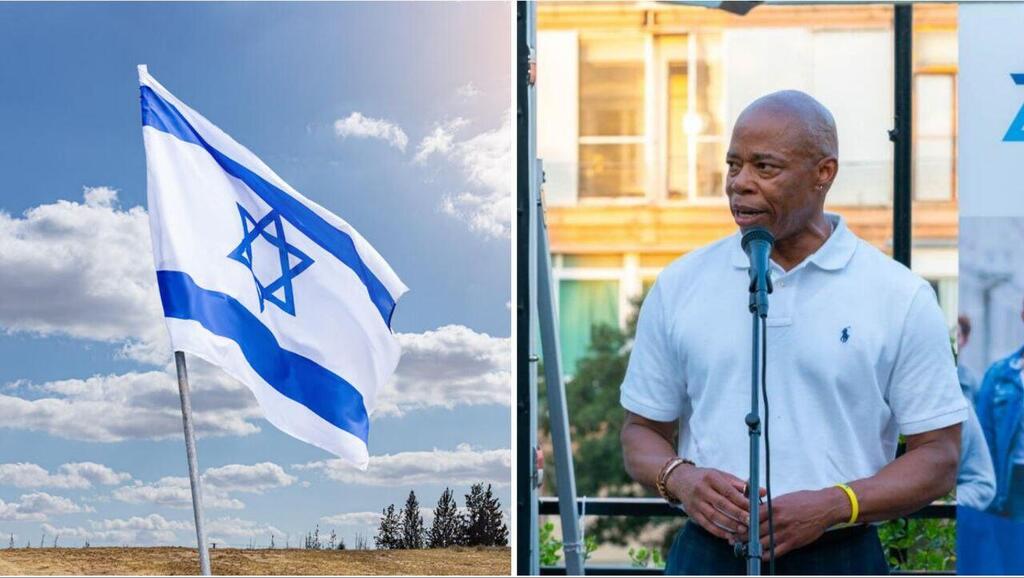

New York City Mayor Eric Adams before Israeli business and tech leaders speaking in Tel Aviv
(Photo: Shutterstock, Adam Sherez)
"Another thing that stands out in this plan is the ministry of finance's trust it puts in the Innovation Authority. There is a willingness to pour resources and run programs through this body, unlike, for example, the finance ministry's proposal to cut the budgets of chief scientists in several ministries. On the other hand, what is very, very negative in my opinion is the cut from the higher education budget. In general, the fact that this budget is under the Ministry of Education makes no sense. If it was under the Ministry of Science, the perspective would have been different; you see that the Minister of Education is more interested in NIS 200 million for the general education budget than for Council for Higher Education.
Do you agree that Israel missed the train in terms of leading the artificial intelligence?
"AI is like electricity – it's a huge wave, which affects in length, width and depth. The government had a national plan regarding AI already in 2018, led by Prof. Isaac Ben-Israel, but it did not materialize. And in fact, all that has to do with the development of AI infrastructures, such as ChatGPT - we are far behind, also in terms of academic research, with a small exception such as AI21 Labs by Amnon Shashua and Yoav Shoham.
"Revolutions of this type require investment in research infrastructures, technological infrastructures and staff, and at least the cooperation of the government, which was not the case here. This is also an area that the size plays a significant role, and we are in a position of weakness to begin with. Since 2018 we've had political crises, Covid and a judicial overhaul; there has not been one single normal government, which was able to think ahead. We are paying a price for it. Technology in the world does not stop. However, in everything related to application of AI technology within products - there are already more than 2,000 companies in Israel who engage in that, and their number will continue to grow."
Can you fix this situation?
"AI is going to be present in our lives for many years. So, let's say that if you change the diet of a four-year-old it won't work the same as if you fed him properly from the age of two months, but you can still greatly improve his health."
How do you see the Israeli high-tech map in the next two years?
"We have chosen several focal areas, which we are trying to promote with the help of many initiatives, mainly in the worlds of 'deep-tech': health (health-tech), climate (climate-tech), food (food-tech) and agriculture (ag-tech). These should be the growth engines of Israeli high-tech, because these are the world's challenges. We can be a significant player in each of them: there is a sufficient number of companies, academic knowledge, excellent hospitals, and advanced agriculture tools. These fields are also beneficial for the country: the occupational mix involved in them is better – as there are not only engineers and programmers, but also biologists and technicians, agronomists and more."
No doubt, you are a hopeless optimist.
"Listen, you have to leave Israel in order to understand how special this place is with all that's happening here: this bubbling of ideas, which also derives from the craziness we live in, a country where everyone, all the time, has to be an entrepreneur. It must be in our blood, which is amazing. And besides, as long as the other components are here - investors, human capital and a supportive government - I will remain optimistic."


